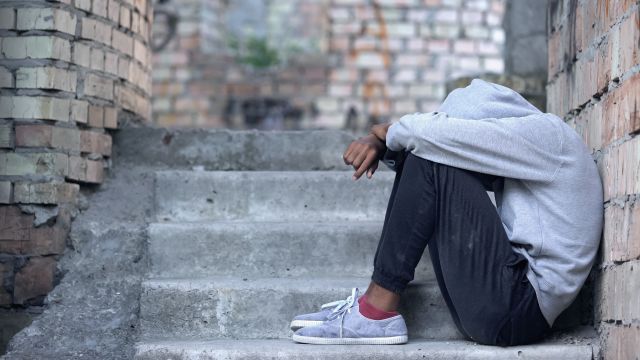Updated on November 18, 2024.
More than five million adolescents aged 12 to 17 in the United States experienced depression in 2021, according to the National Institute of Mental Health. That means about 1 in 5 teens had at least one major depressive episode during the year, when the country was still immersed in the COVID-19 pandemic. This marked a steep rise even compared to 2013-2014, when the rate was 1 in 9 teens.
Studies suggest that depression among teens has improved slightly in recent years, as COVID-19 has abated. But it remains a major issue for public health experts, healthcare providers, and especially families.
What does depression look like in teens?
Typical symptoms of a depressive episode in an adolescent include:
- Loss of interest in things that were once pleasurable
- Extreme sensitivity to things like rejection and failure
- Sleeping problems
- Decreased energy
- Worsening school performance
- Lower motivation
Experts don’t know exactly what causes depression, but various factors are thought to contribute to the disorder. Some teenagers are at higher risk than others. These include those who have experienced the following.
Self-esteem issues
Scott Adams, PhD, a behavioral health services expert in Wheat Ridge, Colorado, sees numerous cases of teen depression in his practice. Many of those cases are related to low self-esteem.
Teens who experience bullying, academic problems, or body issues like obesity are at higher risk of depression, according to Adams. That includes young people who are questioning their sexuality or gender identity or who identify as lesbian, gay, bisexual, or transgender (LGBT). Some researchers think having low self-esteem as a teen makes for less emotionally resilient adults.
Health conditions
People who live with long-term diseases like asthma or chronic pain syndromes are at increased risk of depression. Bipolar disorders, personality disorders, and anxiety disorders can all coexist with depression, too, says Adams. “If they have a physical disability that sets them apart from other kids their age, that would be a risk factor,” says Adams.
Genetics and family problems
While it’s not always the case, depression can be hereditary. If someone in the family has a history of depression or mental illness, a child may be more at risk for inheriting the disease. Teens who experience even normal stressful life events, such as divorce, death in the family, dysfunctional family dynamics, or exposure to a family member with suicidal thoughts also have an increased risk of depression, according to Adams.
Social media and unrealistic expectations
Another possible reason for depression in teens is the increasing popularity of social media, accessed largely through their phones. About 95 percent of teenagers have a smartphone. In 2023, a Pew Research Center survey of kids ages 13 to 17 found that the vast majority use a social media platform and just about half are online “almost constantly.”
Multiple studies link adolescent mental health problems to the habit of spending large amounts of time on social networking sites, like SnapChat and TikTok. Looking at actors, bloggers, influencers, and other teens all day every day can cause teens to put more pressure on themselves. “When using social media, they are faced with unrealistic expectations of how they should be and who they should be,” Adams says.
Lack of sleep
We’re all grumpy if we don’t get enough sleep. But when this happens to teens—all too common, especially among “night owls” who attend schools with early start times—they may face bigger issues than just moodiness. Evidence strongly suggests that sleep-deprived adolescents face a higher depression risk.
The National Sleep Foundation recommends that teens get 8 to 10 hours of sleep every night. But studies show most teens don’t get nearly enough sleep, and almost a quarter of adolescents are estimated to have insomnia.
Depression and sleep dysfunction often go hand in hand, as depression can also cause insomnia or other sleep disorders. And while researchers still aren’t clear as to why poor sleeping habits may lead to depression, a tired teen may have impaired judgment and may have a hard time dealing with regular daily stress.
If your teen is experiencing symptoms of depression that interfere with their everyday life, take the time to talk to them and listen to them, and reach out to a healthcare provider for additional support.







